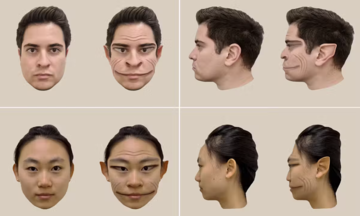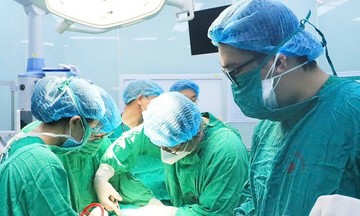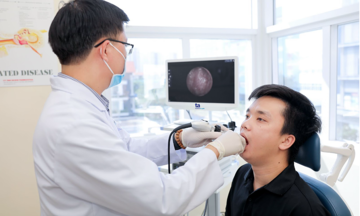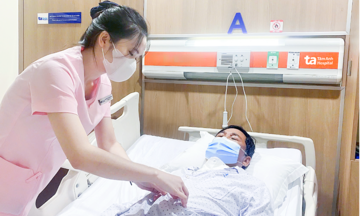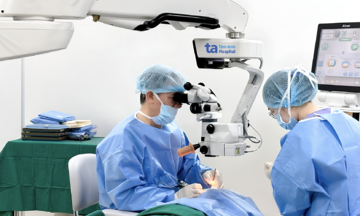63-year-old Franklin Simon, an Australian living in Ho Chi Minh City, recently suffered from intense chest pains. His initial examination at a major private hospital revealed normal heart function. However, a brain MRI showed a small tumor, leading doctors to diagnose his chest pain as a symptom of epilepsy.
Prescribed medication to control the seizures, Mr. Simon was advised to restrict activities like swimming, climbing, and driving for at least six months. Unconvinced that this addressed the underlying tumor, he sought a second opinion and more comprehensive treatment at FV Hospital.
 |
Mr. F. during a follow-up appointment with Dr. Luong Anh at FV Hospital. His health is stable. Photo: FV |
Mr. F. during a follow-up appointment with Dr. Luong Anh at FV Hospital. His health is stable. Photo: FV
Dr. Tran Luong Anh, Head of Neurosurgery and Spine at FV Hospital, diagnosed Mr. Simon with a rare cavernous hemangioma located in the hippocampus, the area of the temporal lobe responsible for short-term memory.
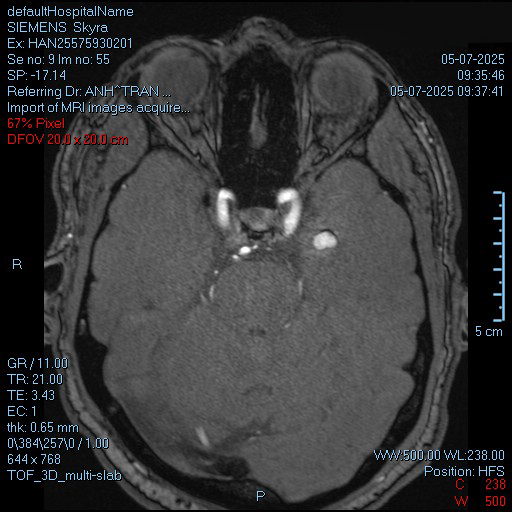 |
MRI image of the 9x14 mm vascular tumor located 5 cm deep within the cerebral cortex. Photo: FV |
MRI image of the 9x14 mm vascular tumor located 5 cm deep within the cerebral cortex. Photo: FV
This tumor caused temporal lobe epilepsy, leading to seizures felt internally, particularly in the chest area. Mr. Simon also experienced hallucinations, both auditory and visual.
Concerned about potential bleeding and further complications, Mr. Simon agreed to surgery. Dr. Anh meticulously reviewed his medical history and devised a detailed surgical plan.
The 9x14 mm tumor was located 5 cm deep within the cortex, a sensitive area. Even a slight surgical error could severely damage surrounding brain tissue responsible for memory. The key challenge was precisely targeting and removing the tumor without harming healthy tissue.
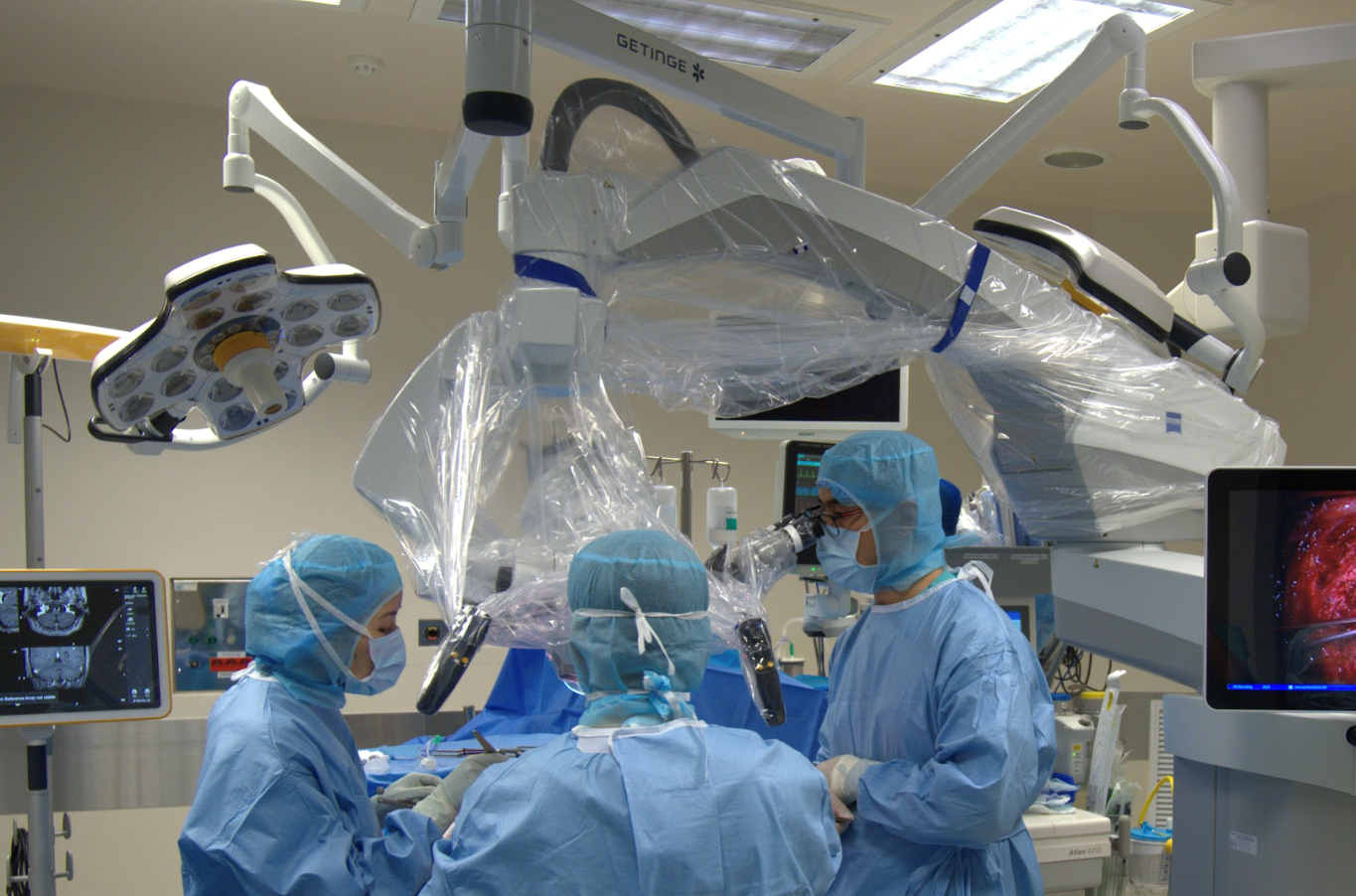 |
Dr. Tran Luong Anh performing brain surgery on the patient. Photo: FV |
Dr. Tran Luong Anh performing brain surgery on the patient. Photo: FV
Adding to the complexity, brain tissue can shift during surgery due to changes in intracranial pressure and cerebrospinal fluid flow, potentially affecting the pre-operative MRI data. An FV representative explained, "The surgeon's experience and skill are crucial, as even a small slip could have serious consequences."
The Navigation system aided in precision, and after nearly two hours, the tumor was completely removed. The seizures, hallucinations, and visceral spasms disappeared entirely. Four days later, Mr. Simon was discharged and returned to his normal life.
Dr. Anh emphasized, "Without correctly identifying and treating the underlying cause, the patient could have been misdiagnosed with a psychological disorder, leading to inappropriate and potentially life-threatening treatment."
Mr. Simon had undergone several surgeries, including wisdom tooth removal, three knee surgeries, and an appendectomy, but the prospect of brain surgery was daunting.
"I considered postponing the surgery, even returning to Australia for treatment," he recalled, "but after Dr. Anh at FV explained the risks of recurrent seizures, I decided to proceed immediately."
Upon waking after surgery, the seizures and hallucinations were almost gone. During a follow-up appointment in early August, he shared, "I feel fortunate to have chosen FV. The doctor is highly skilled, the staff attentive; everyone treated me like family."
Dr. Tran Luong Anh is a leading expert in cranial and spinal surgery. He prioritizes minimally invasive techniques to reduce pain, facilitate faster recovery, and preserve brain function. FV Hospital's advanced equipment allows Dr. Anh to achieve high precision in complex cases, delivering optimal patient outcomes.
The Dan
*The patient's name has been changed.
To schedule an appointment with Dr. Tran Luong Anh for neurological, spinal, or brain conditions, contact the Department of Neurosurgery and Spine at FV Hospital: (028) 35 11 33 33.



